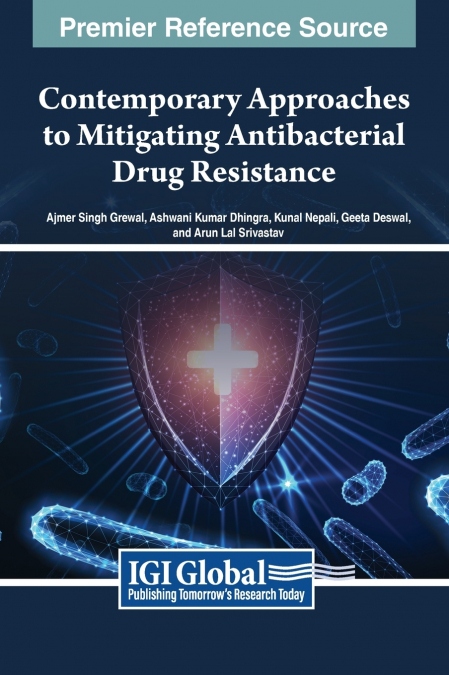
 Librería Perelló (Valencia)
Librería Perelló (Valencia)
 Librería Aciertas (Toledo)
Librería Aciertas (Toledo)
 El AlmaZen del Alquimista (Sevilla)
El AlmaZen del Alquimista (Sevilla)
 Librería Elías (Asturias)
Librería Elías (Asturias)
 Librería Kolima (Madrid)
Librería Kolima (Madrid)
 Donde los libros
Donde los libros
 Librería Proteo (Málaga)
Librería Proteo (Málaga)
In infectious disease management, antibacterial agents have long been viewed as pivotal tools in the relentless battle against microorganisms. However, the escalating threat of antibacterial drug resistance has emerged as a formidable challenge to global health. Contemporary Approaches to Mitigating Antibacterial Drug Resistance delves into the heart of this critical issue, exploring the mechanisms, consequences, and innovative strategies to counteract the surge of resistance, a phenomenon becoming increasingly pervasive and threatening worldwide. Antibacterial drug resistance, a pressing public health concern, transcends geographical boundaries. In regions where antibiotic accessibility and overuse prevail, resistance rates soar, giving rise to the ominous 'superbugs.' This book unravels the intricacies of drug resistance, examining its impact on infectious disease management, healthcare economics, and societal well-being. The exploration begins with a foundational understanding of antibacterial drug resistance, navigating through the intricate mechanisms that drive its rapid proliferation. Environmental and genetic factors, often overlooked, are dissected for their roles in fostering resistance. The book explores the interplay of antibacterial drugs with micro-biodiversity, shedding light on the indirect repercussions on human and environmental ecosystems. The primary audience, encompassing undergraduate and postgraduate students, medical practitioners, academicians, and researchers, will find in-depth insights into emerging therapeutic targets and recent advances in drug development. The secondary audience, including authorities in antibacterial drug resistance and institutional libraries, will discover a valuable resource addressing the multifaceted dimensions of this global menace.